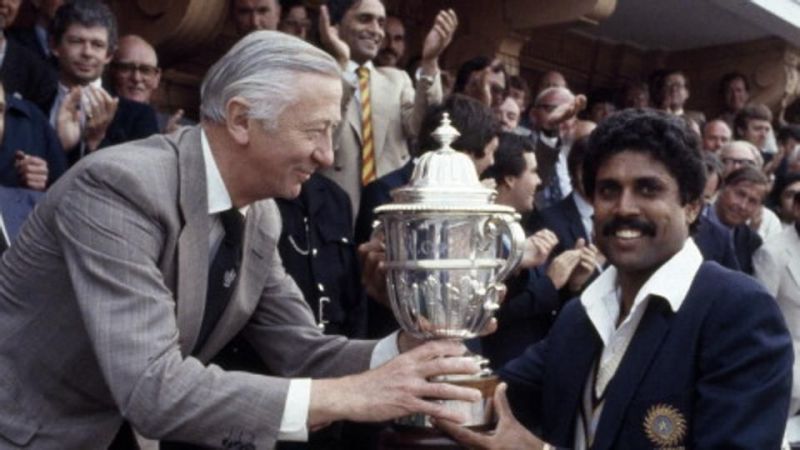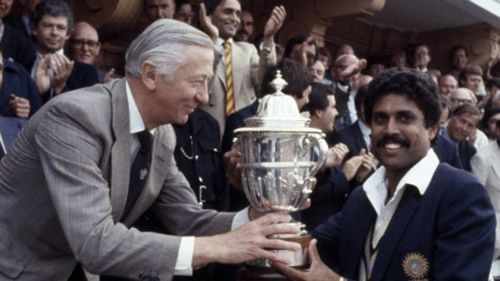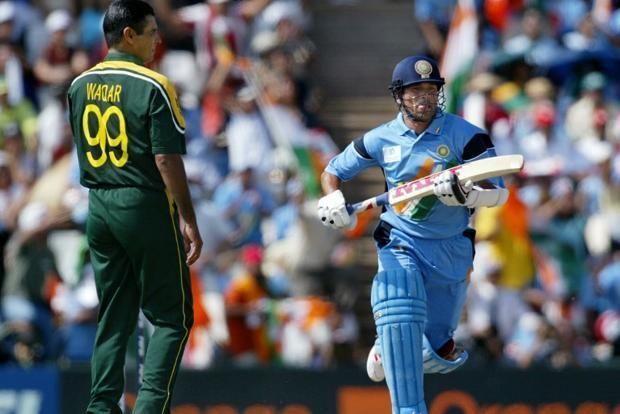
Agony and ecstasy: Revisiting a few great World Cup encounters

Much has been said, discussed and written about India's win in the 1983 Cricket World Cup. While die-hard supporters chose to hail the victory as epic, skeptics were more circumspect, citing the results which followed.
West Indies toured India soon after the World Cup in the so-called "Revenge Series" that year, winning the six-Test series 3-0 and inflicting two innings defeats in the process. In the fifth Test at the Eden Gardens, India were bowled out for 90 in the second innings; Malcolm Marshall doing most of the damage in that match and the rest of the series. To make matters worse, the ODI World Cup winners lost the ODI series 5-0!
Irrespective of what transpired before and after, however, the significance of the tournament was huge and arguably changed cricket forever. Kapil's Devils defied the odds and the bookmakers and crafted history with Mohinder Amarnath playing a pivotal role throughout.
Whether you are an old-timer who had the good fortune to watch the match live (and narrate the same to future generations) or one of the younger ones who has seen the recordings on TV or on video CDs since, cricket fans can ill afford to belittle India's win which opened up the game of cricket and signalled the beginning of the end for West Indies' hitherto unchallenged run in World Cups.
Although difficult to believe, after winning in 1975 and 1979, West Indies have never ever won an ODI World Cup since. Post 1983, they have never even made it to the the finals of any ODI World Cup. To call India's victory a flash in the pan, therefore, is not an accurate assessment in this context.
India and Pakistan play co-hosts
Yet, it was the Reliance World Cup in 1987 which will be etched in the memory of cricket lovers in the subcontinent. For the first time ever, the World Cup moved out of England to be co-hosted by India and Pakistan. That in itself was enough for cricket crazy Indians and Pakistanis to go into a swoon.
As per the tournament format, India's group matches were to be played in India while Pakistan would play theirs in Pakistan. The semi-finals were slated to be held in Lahore and Bombay. The subcontinent teams were not just the co-hosts though; they also started joint favorites along with the West Indies, and with the added advantage of mammoth crowd support and ideal conditions, were tipped to meet in the final.
So, in keeping with the script, when both India and Pakistan qualified for the semi-finals, for most fans, it was a foregone conclusion that their dreams were on the verge of being realized. In a dramatic twist of fate, however, in the first semi-final, a strong Pakistan line-up under Imran Khan's captaincy unbelievably ended up losing to Australia, sending shock waves through Pakistan and India too.
A day later, in Mumbai (then Bombay), Graham Gooch and Mike Gatting made a mockery of India's powerful spin attack using the sweep shot to perfection against Ravi Shastri and Maninder Singh and guiding England to victory.
Alas, tragedy had struck on both sides! It was as if Eden Gardens was decked up for a marriage, but both the bride and bridegroom did not make it. A bitter Imran Khan retired and it seemed like an era was ending for Pakistan cricket. Kapil Dev was sacked as captain and would never lead India again.
England played Australia in the final with Allan's Border side winning the cup, surprising themselves and the rest of the world. The mammoth Eden Gardens crowd cheered for Australia in the final, since England had knocked India out. Like India's win in 1983, Australia too were not fancied to go all the way, yet the win started a huge ascent for Aussie cricket.
Return of the inspirational Khan
In 1992, the World Cup moved Down Under and was co-hosted by Australia and New Zealand. Post the '87 loss, Imran Khan retired, bitterly disappointed by his inability to end with a bang at the Eden Gardens. At the request of then President Zia-Ul-Haq, Imran decided to return to international cricket aiming for one last hurrah.
It was not that Imran wasn't already a legend, or had anything left to prove. Yet, 1992 was the jewel in the crown, so to speak. After a mediocre start to the tournament, Pakistan were on the verge of elimination. A backs-to-the-wall performance saw them reach the semis where they would face New Zealand in Auckland. The Kiwis were looking invincible at home but ultimately fell short against a determined Pakistan outfit. Pakistan finished England off in the finals to win the World Cup and realize their skipper's dream. It was another red letter day for subcontinental cricket.
Old Rivals, New Setting
Fast forward to March 1, 2003. The World Cup was being hosted by South Africa, and India and Pakistan clashed in a Pool B encounter. Possessing a bowling attack that was arguably one of the best in the world with veterans Wasim Akram and Waqar Younis, and spearheaded by the lightning pace of Shoaib Akhtar, there was no question as to who started favorites. Saeed Anwar opened the batting in a line up that boasted the likes of Inzamam, Mohammad Yousuf, Younis Khan, and the explosive Shahid Afridi. True to form, Anwar scored a century and Pakistan put up 273 in 50 overs. India had to play "out of their skins to win this one" a commentator had famously said in the lunch break.
Nervous Indian supporters settled down in front of their TV sets to watch the Indian innings in a bid to see how far Sourav Ganguly's boys could go. As predicted, drama and pyrotechnics did follow, but it was India who did the damage. Master Blaster Sachin Tendulkar, who was in prime form, made the formidable Pakistan bowlers look pretty ordinary and singled out Akhtar for the harshest treatment. India rolled to victory in the 46th over with ridiculous ease as the entire nation was sent into raptures. Although India lost to Australia in the final of the event, the win against Pakistan was well and truly the highlight of that edition of the World Cup.

2007 witnessed an utterly tragic and forgettable World Cup for India and Pakistan, both of whom were eliminated in the group stages. Pakistan lost to Ireland and hours later coach Bob Woolmer died under mysterious circumstances. Indian coach Greg Chappell was forced to resign soon after, as India's ignominious defeat to Bangladesh was the end of the road for them too. It was a dark period for cricket in the subcontinent.
Champions Again!
Not to be put down for too long, both teams came back strongly in 2011. A strong Indian side beat Pakistan in the semi-finals of the 2011 World Cup and Sri Lanka in the final to be crowned champions after a gap of 28 years. While it was a great victory no doubt, India were one of the favorites to win and arguably the best team in the competition.
On June 25, 1983, at Lord's, on a pitch that had more than a patch of grass, against the might of the West Indies, India had managed a paltry 183. It was highly debatable whether Clive Lloyd's team possessed a better bowling or batting unit; a debate that possibly would reach no conclusion, such was the talent in their ranks. Yet, the underdogs won, in a game of glorious uncertainties, creating history like never before. No matter how many cups India win in the future, the magic of that win will eclipse all the others and stand the test of time much like Pakistan's win in 1992.
And two great players, two great all-rounders, and two legendary captains, Kapil Dev and Imran Khan, will continue to inspire future generations for a very long time to come.